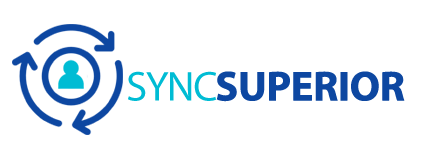
The first job interview after completing college feels like entering an exam hall – heart pounding, hands sweating, and the only question on your mind is, “What happens next?” This fear and confusion are completely natural. But can I tell you a secret? As an experienced HR expert, I can say that an interview is less an exam and more a conversation. And like every conversation, it can be made great with proper preparation.
In today’s article, we’ll explore not just general advice, but practical and practical tips that will truly change your first interview game.
Step One: Before the Interview – Research is more than just knowing the company’s name
This is where 90% of students make a mistake. They are satisfied with just knowing about the company and what it does. The real preparation begins here.
- What to do? Read the company’s website thoroughly, especially its ‘About Us’, ‘Mission-Vision’, and ‘Blog’ or ‘Media’ sections. Follow the company’s page on LinkedIn and see what kind of content they’re sharing. According to a report, 67% of interviewers prefer candidates who are knowledgeable about the company.
- Why do this? When you say in an interview, “I saw on your website that you recently launched XYZ project, and I think my skills could contribute to it,” it will give you an edge over 90% of other candidates. It shows that you didn’t just apply for the job, but invested your time thoughtfully.
Step Two: Learn to Present Your Resume as a ‘Story’
Your resume isn’t just a piece of paper; it’s a trailer for your professional story. The interviewer may question every single point on your resume.
- How to Prepare? Prepare the ‘what,’ ‘why,’ and ‘how’ behind every line of your resume. If you wrote “I was part of the event management team at a college fest,” be prepared for this.
- The interviewer will ask: “What role did you play at that event? Any challenges you faced? How did you work with the team? What was the outcome?”
- Your answer: “I was part of the logistics team. Our biggest challenge was arranging seating for over 200 guests. We created a task sheet and held daily meetings, which ensured the event was a smooth success. This taught me project management and teamwork.”
- This technique is known as the STAR (Situation, Task, Action, Result) method, and is a popular method among HR professionals.
Step Three: Soft Skills – The Secret Weapon That Makes You Stand Out
According to research, 93% of employers value soft skills more than technical skills. If you have a degree, other candidates do too. What sets you apart? Your communication skills, confidence, and problem-solving skills.
- Communication Skills: Speak clearly and confidently. Listen to the interviewer occasionally and then respond. Practice in front of a mirror at home. Famous motivational speaker Simon Sinek says, “People don’t remember what you said, they remember how you made them feel.” A good conversation creates this feeling.
- Body Language: Sit up straight, make eye contact, and maintain a slight smile (not a nervous one). This shows confidence. According to one study, body language accounts for 55% of communication.
Step Four: Asking Questions – It’s Your Right, Not a Weakness
When the interviewer asks, “Do you have any questions?” never say “no.” It shows your interest.
- What to Ask? Avoid asking directly about salary (this is for the first round). Instead, ask questions that demonstrate your understanding.
- “What qualities would you look for in an ideal candidate for this position?”
- “What are the growth opportunities at the company?”
- “What’s the team culture like?”
Step Five: Post-Interview Work – What Most People Forget
Just because the interview is over doesn’t mean your work is over. Send a thank-you email within 24 hours of the interview. It’s a small gesture, but it shows your professionalism and etiquette. According to an article in Forbes magazine, 22% of candidates who send thank-you emails after an interview have a higher chance of being selected.
Conclusion: Make fear your friend, not your enemy.
Finally, remember, every expert was once a novice. The HR person conducting the interview is also having their first interview. They don’t expect you to be perfect, but they want to see if you’re ready to learn and grow. It’s okay to be a little nervous, but don’t let that fear overwhelm you. Take a deep breath, trust your preparation, and enjoy this opportunity to tell your true story.
Wishing you a bright future… Best wishes from Sync Superior and if loved this content share it with others too on social media – your 1 share will help a lot!
